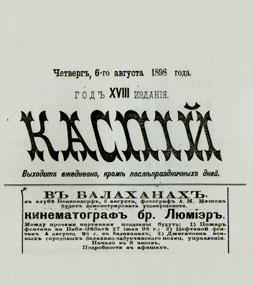 The history of Azerbaijani cinema is part of the history of Azerbaijani culture. Twenty years ago, during the decline of the Soviet Union, some pessimists saw the crisis that had emerged in Azerbaijani cinema and were uncertain about the future. Back then I was working on research, which I had started long before, into the creation of Azerbaijani national cinema and was trying to look more optimistically to the future. Thank God, the pessimists’ assumptions did not come true. Already this year 10 full-length and short films are being made in Azerbaijan and our films are now shown at various film festivals. And here in brief is the fruit of my intensive research.
The history of Azerbaijani cinema is part of the history of Azerbaijani culture. Twenty years ago, during the decline of the Soviet Union, some pessimists saw the crisis that had emerged in Azerbaijani cinema and were uncertain about the future. Back then I was working on research, which I had started long before, into the creation of Azerbaijani national cinema and was trying to look more optimistically to the future. Thank God, the pessimists’ assumptions did not come true. Already this year 10 full-length and short films are being made in Azerbaijan and our films are now shown at various film festivals. And here in brief is the fruit of my intensive research. Azerbaijani cinema pre-dates Soviet era
Let´s go back in time. Over a long period our people lived in the Soviet empire, in the large "family" of Soviet nations, and they were told nothing at all about advances made in our country, including in education and culture. Sentences such as, "Before the revolution, Azerbaijan was a country of totally poor, uneducated people" and"The Soviet authorities saved the Azerbaijani people from many centuries of social and national oppression" could often be seen in books, and became received ideas. The same was said about cinema too: "The development of national cinema in Azerbaijan started after Soviet power was established - in 1920..." These ideas and instructions ensued from the requirements of Soviet ideology and often made researchers turn a blind eye to the facts. They linked all achievements to the "victory" of the October Revolution and Lenin´s "genius".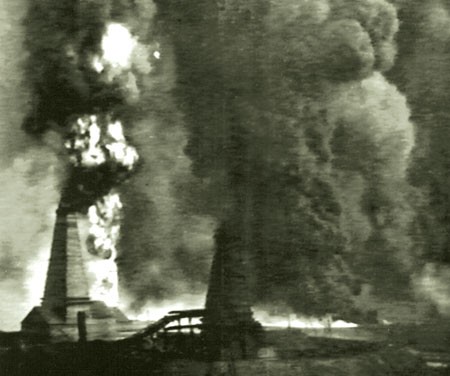 A shot from the film Fire at an Oil Gusher in Bibiheybat (1898)
A shot from the film Fire at an Oil Gusher in Bibiheybat (1898)
However, I always wondered when Azerbaijani cinema really did begin. After all, Baku was an international hub after the oil boom at the end of the 19th century. Many people came to Baku at that time. Could cinematography have passed Baku by? I found during my research that cinema equipment had been brought to Baku and put on sale in the second half of 1886. From that time onwards, foreign films were shown in our city and from May 1898, films were made here too. It was Bakubased photographer Aleksandr Mikhailovich Mishon who shot those films, or rather stories. Mishon, who was a Russian subject, lived for over 30 years in Baku. He had a photographic studio and a printing house in the city. Along with film-making and photography, he published a magazine called Middle Asia and the Trans-Caucasus. He also taught the art of photography to local people at a Baku photography club.
AleksandrMishon made several short films about life in our city. These included Fire at an Oil Gusher in Bibiheybat, Oil Gusher in Balakhani (the originals of both are kept at the Paris Cinema Archive and copies are at the Azerbaijani State Cinema Fund), Farewell Ceremony for His Highness the Emir of Bukhara on the Steamship Velikiy Knyaz Aleksey, Caucasus Dance and Yeh, You’re Busted (about a comic incident in a Baku city garden). These films were shown at the Vasiliy Vyatsikin circus theatre in Baku on 2 August.
Centenary celebrations
As part of the Festival of International Festivals in May 1998, the centenary of Azerbaijani cinema was celebrated. That evening President Heydar Aliyev spoke to visitors to the film festival. "Today we made one discovery," the president said. "We showed that Azerbaijani cinema started in 1898 and that it is turning 100. For many years we all thought that the year 1916 saw the start of Azerbaijani cinema. However, if I can say so - it is not that easy to extend the history of Azerbaijani cinema by 10 years or several years.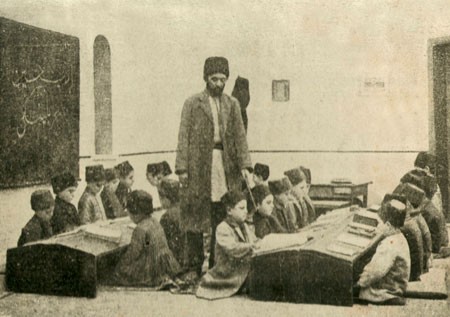 A shot from the film of In the Kingdom of Oil and Millions (1915)
A shot from the film of In the Kingdom of Oil and Millions (1915)
"This means that Azerbaijan is a civilized country. As soon as cinema emerged in the world, it appeared in Azerbaijan too. After all, there are few countries where cinema really came into existence at the very time that cinema was created in Europe. Therefore,
Interestingly, stories filmed in Baku were shown before August 1898 too. For example, a secondary school for boys in Baku filmed parts of performances staged at a prison in late May 1898. The documentary was shown that summer and part of the money raised was spent on the prison. Another example occurred on 31 May the same year: the leadership of the photography club organized a charity stroll for members of the public in the Mikhaylov garden and showed films. The event itself was filmed and given the title A Public Stroll in a City Garden. This event was shown together with other short films about Baku life, A Train Entering the Railway Station, Steamship Leaving the Port, which belonged to the Caucasus and Mercury Society, and Market Street at Dawn. The films were shown before a circus performance at the circus in the centre of Baku on 21 June.
At the time, the newspaper Kaspi described the event as an extraordinary and interesting joint screening. Although Mishon´s public screening had been an experiment, he was encouraged by the success and showed his second film repertory without any auxiliaryprogramme on 2 August 1898. Short films entitled The Horse Guards of the Balakhani-Sabunchu Police Department Riding and Oil Gusher in Balakhani on 4 August 1898, which portrayed life in the village of Balakhani, were shown at the Benkerdorf oil workers´ club in Balakhani on 6 August.
In the early 20th century, various documentary films were made, including Baku Oil Fields, Oil Refineries and Work at Oil Wells.
Kaspi and other newspapers published reports on films about life in Baku. An announcement in the 10 December 1898 edition of Kaspi gave information about the Lumiere brothers´ cinematograph which was used to show films. The announcement said that Mishon´s cinematograph was the only machine of its kind in Russia. The machine filmed moving pictures and animated the images on a screen, five sazhens in size (a Russian measurement of length equivalent to 10.5 metres). Five years before Azerbaijan became Soviet, the Belgian Pirone brothers established a joint-stock company, Filma, which produced several feature films in 1915. Director B. Svetlov was invited from St Petersburg to work on the films.
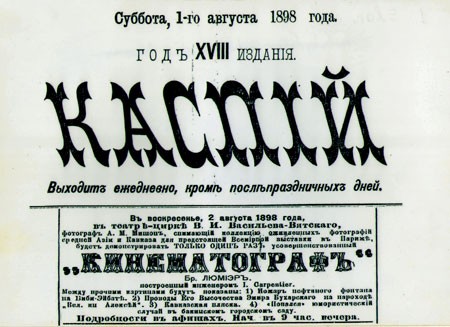
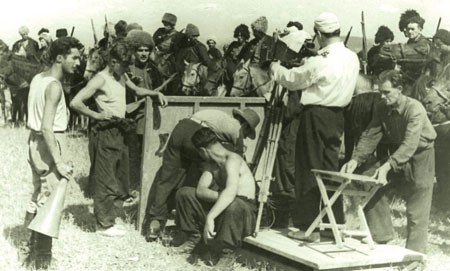
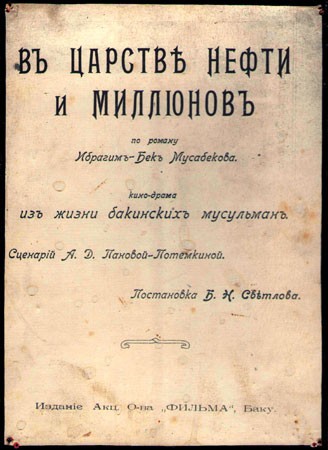
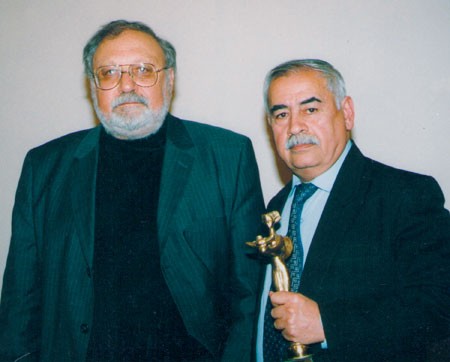
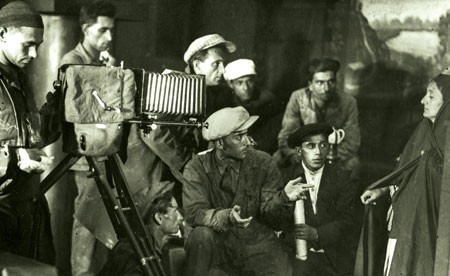
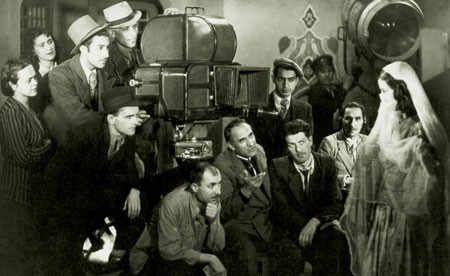
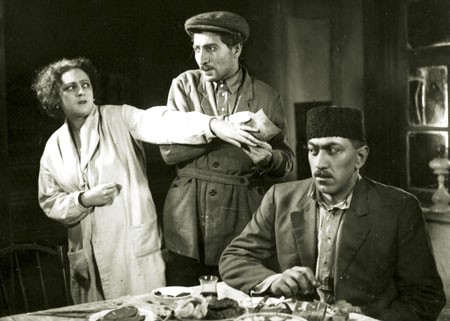

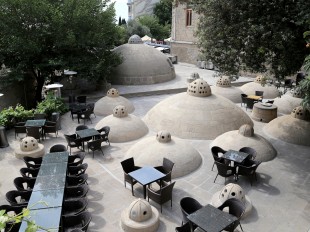
.jpg)